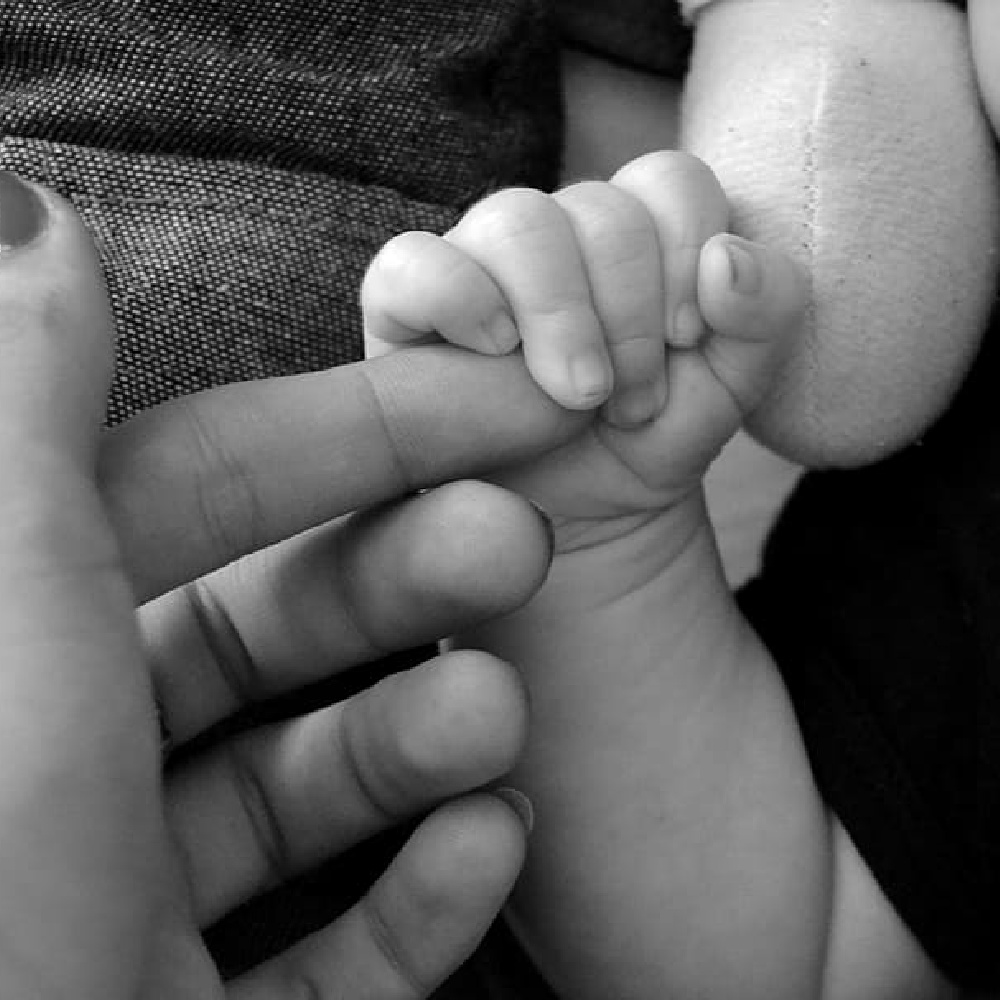To my dear, fellow, active, believing Latter-day Saints who feel Brother Brad Wilcox and the Church have been unkindly and unfairly maligned after his talk to the youth in Alpine on Feb 6th, 2022: I hear you. Yes, he—and the Church—have. There are a few who have been cruel and mean-spirited in their criticism. Rarely, if ever, is it worth responding to such people. They are not often in a place where they are capable of seeing others beyond a black and white caricature.
But there are others who speak from a place of honest confusion, hurt, and even moral indignation—their frustration born from a desire to heal historic injustice and help our church do better. My heart goes out to them as well. Many are my friends. They need to be heard and simply loved for their thoughtful care, whether we agree with them or not. My heart also goes out to Brad, his family, friends, and all those who appreciate his many years devoted to teaching and inspiring brothers and sisters of our faith.
For the last decade, some of the community and faith work that I feel God has called me to has involved trying to help myself and others hear and learn from each other better across differences—including with my own core family members. So when I heard Brother Wilcox’s remarks and the controversy they generated I felt a need to watch the talk myself. I watched it several times while avoiding social media or news reports and sensed his genuine desire to capture the attention of his young audience through humor and lightheartedness. And yet some of what I saw and heard troubled me.
I have a deep affection for The Church of Jesus Christ of Latter-day Saints and how it blesses people throughout the world. As our leaders often teach, we have the capacity to bless even more people than we currently do. Because of my interest in seeing this wonderful faith community grow and flourish I feel called to ask: Are the tone and approach of talks such as this, and similar expressions sometimes used by other members or leaders, best helping us in our mission to bless the world?
At one point in his remarks, Brother Wilcox said: “Maybe we’re asking the wrong questions.” I’m wondering if those who are offended and upset by all those who are offended and upset by his talk, might also be asking the wrong questions. If so, that doesn’t mean we need to question Brother Wilcox’s good character or intentions. Rather we could allow ourselves to think more carefully about the content, tone, and approach of what he said. Such sincere inquiry about even challenging questions is not an apostate activity when done thoughtfully and seeking the will of the Lord. Such engagement, I believe, is invited in our covenant of baptism and our commitment towards sustaining church leaders (Mosiah 18:8-10).
For a good part of my life, I may have cheered such a talk. But challenging experiences have taught me the value of being curious and at times asking uncomfortable questions. Heartfelt questions often put Joseph Smith in difference with those around him as he sought God’s will. Critical questions posed by others often inspired revelations throughout his life. My Savior and membership in this church ask me, again and again, to ask what He would have me do better or differently, and then try to do it. Sounds a lot like repentance doesn’t it? Are those of us who are offended by those who are offended asking the wrong questions?
These experiences make me wonder if the wrong questions for us to ask are “How can so many people get Brother Wilcox’s talk so wrong? Or “How can they be so upset with a General Authority?” Sometimes our first impulse shouldn’t be “What must I do to defend him and the faith?” Instead, maybe active, faithful, sustaining Latter-day Saints could also ask questions like these:
How would this talk cause my friends of other faiths to feel if they heard it? Would I want them to think that they are “playing church” and that what they are doing doesn’t “count” in any meaningful sense? Or to hear their traditional marriage language of “until death do us part” and “as long as you both shall live” dismissed in a way that felt flippant and uncharitable?
Last year Elder Oaks addressed similar concerns. He cautioned Latter-day Saints to be careful when talking about scripture referring to the “only true and living church.” And that in doing so, we should take care to not give offense and not imply that we have a monopoly on truth or are “holier than thou” and better than others. He said: “We should try to avoid all of those ideas because none of them are true, God has not taught us anything that should cause us to feel arrogant or superior to other people.”
Is referring to people within our faith who are “getting uptight about the priesthood” a good way to frame their concerns and sincere questions? Does it encourage our youth or others to feel safe asking their own honest questions?
How would my black friends feel about a historically inaccurate and insensitive explanation of why they didn’t have the priesthood until 1978? Does such rhetoric help heal racial wounds? I appreciate Brother Wilcox quickly apologizing for what he said in that regard. I believe in his good character and I hope that he will one day explain in greater detail why his original explanation was wrong, and perhaps even address some of these other concerns his remarks prompted.
In talking about women and the priesthood, Brother Wilcox related an encounter he had with a lady at a conference he was attending. She saw his name tag with Brigham University on it and loudly demanded to know “why don’t you give women the priesthood?” After relating his response to her he advised: “Girls, you’re going to hear a lot of people say a lot of things and many of them say them with very angry voices. But just because somebody’s angry doesn’t necessarily make him or her right. Just because somebody’s loud doesn’t necessarily make him or her right.”
He’s right about someone being loud and angry not necessarily making them right. And there are way too many angry voices in the world that are trying to shout down that which is good. But if being a disciple of Jesus requires us to love our enemies and to do good to those who despitefully use us, then shouldn’t we at least try to listen to, understand, and have some empathy for some of those voices that we find challenging? Especially those near and dear to us?
I find it humbling to remember that in Dr. Martin Luther King’s day, many religious leaders labeled King as loud and angry. With hindsight and reflection, he is now revered by the majority of white Christians. We now know that what was then perceived as a loud and angry voice was actually God asking us to “Hear Him.” How many times have we needed a louder, sharper voice to get us to move in the direction God is trying to get us to go? I know I have. So does my wife.
Rather than writing off anyone raising frustrations or serious concerns, could we do a better job listening to the pain and frustration in our family of faith? Some of those voices can sound harsh. Few of us express well what we feel passionate about every time. Some women might hear Brad Wilcox’s remarks regarding loud and angry voices as pointed at them or other women who have concerns about the priesthood. Was that what he intended? Of course not. Leaders of the Church have been working for some time now to make more space for those with questions—urging all of us to think carefully about how we talk about and respond to those who confront us with difficult questions and concerns.
What message is sent to our youth by calling the young women in the audience “girls” but calling the boys “young men?” Does such language subtly demean our young women and their potential? Does it cause our young men to think of themselves as more mature and superior than their counterparts? Again, this would be an unintended consequence that I’m sure Brother Wilcox didn’t want.
In testifying of Joseph Smith’s First Vision and revelatory teachings about the Godhead, Brother Wilcox cautioned those considering walking away from the Church: “So you want to walk away from the Church? Say goodbye to your whole concept of God. I had some kid at BYU say to me, ‘I don’t believe in Joseph Smith anymore, but I still believe in God and Jesus.’ And I said, “Look, I don’t mean to be rude, but do you realize how stupid you just sounded?” He’s like ‘What?’ I said,” You don’t believe in Joseph Smith, but you still believe in God and Jesus. You separated them. Who taught you to do that? Who taught you that they’re separate beings? Joseph Smith.”
Would my children, my friends or ward members feel safe in sharing their concerns or questions if they heard a high-level leader of the Church relate such an experience? If they don’t feel safe in sharing with us where they are in their faith journey, who will they share with?
Finally, a recurring theme in Brother Wilcox’s talk was an understandable urgency in keeping the youth engaged in the Church. “If you walk away—from this religion—you lose everything. You lose everything. Everything that truly matters most.” Is fear the best motivator to keep our youth and others a part of our beloved community? Does such a statement instill unsettling feelings that they might lose the continuing love and support of their family and friends if they walk away? Isn’t ensuring that such love and acceptance will always endure exactly what “matters most” to them—and most to us?
Elder Uchtdorf taught: “Fear rarely has the power to change our hearts, and it will never transform us into people who love what is right and who want to obey Heavenly Father. People who are fearful may say and do the right things, but they do not feel the right things. They often feel helpless and resentful, even angry. Over time these feelings lead to mistrust, defiance, even rebellion.”
Brother Wilcox is a gifted teacher who employs a variety of methods to engage his students and help them remember key points. While I and others disagree with some of his tone and approaches to teaching, I did like how he used the letters of the word “gospel” as the framework for his talk. I would like to offer my own imperfect approach to what the transformative gospel of our Savior can mean in our lives:
G is for God is love
The Church of Jesus Christ claims lots of important things—priesthood authority, prophets, the gift of the Holy Ghost, eternal marriage through the sealing ordinance, etc.. But if we don’t get godly love right—charity—then we are nothing. The Book of Mormon and the New Testament both state this emphatically. (1 Corinthians 13, Moroni 7)
O is for continued openness to new revelation
Two years ago, President Nelson, asked the members of the Church to share how we “Hear Him”—Him being the Savior Jesus Christ. He asked us to look for the different ways God speaks His will to us. It was a beautiful and important exercise and the responses were gloriously diverse. Can we hear God asking us to continue making the Church a place where people want to stay, rather than being afraid to leave?
S is for seeing
Seeing—even seeking—and acknowledging the good in others’ beliefs, doubts, and questions is foundational to our faith in the Church of Jesus Christ. We believe that sincere actions and beliefs count in this life and the next. This doesn’t mean that all our individual beliefs and personal practices are true or even good. But if we hope to have influence and persuade others, then we must do it in ways that are godly. That is at the heart of priesthood power as revealed to Joseph Smith (D&C 121:41-44).
P is for people before principles
Principles matter. A lot. Which is why Jesus taught that His principles are to be employed in the service of truly loving God and each other. Jesus demonstrated this clearly when He healed the sick and picked corn on the Sabbath. Perhaps like people in any organized faith, it can be easy for us to become affected in our practice. But the two highest laws that Jesus taught require that we put God first, which I believe we do by putting the consideration and care of people foremost. When we see ourselves as divine offspring of Heavenly Parents, we are more likely to love God by loving our neighbor as ourselves. On this “hang all the law and the prophets” (Matthew 22:35-40).
E is for everyone
Brother Wilcox’s emphasis here is right. Except that the gospel—the good news of Jesus Christ—is not only found in our Latter-day Church of Christ. If we truly believe that God always loves all of us equally, which our scriptures teach, then we can appreciate how sincere believers of God within any church can also be somehow led by Jesus Christ—individually and institutionally.
L is for listening to others
We can also improve in how we genuinely hear the other—those who don’t agree with us politically, live like us economically, or believe like us religiously—just like the Son of God did when He walked the earth. If we listen with compassion and curiosity to those who are different, then we help them feel understood and will find them more likely to listen to us. Heartful listening is crucial for living out “the two great commandments” and treating others as we would like to be treated. When confronted with critical voices, I pray we will take a deep breath, get curious and be ready to become better disciples of Christ.
Editor’s note: Jay articulates here some questions and concerns that have often felt threatening to orthodox believers in the Church of Jesus Christ. But he does so from a place of humility, love and faith. What could it mean to engage in such a conversation within the bonds of our own family of faith, rather than only as part of some ongoing religious warfare? In what ways could questions asked in this spirit help us grow Zion even more among us, rather than tear it down? We hope you can feel the difference between the kind of conversation Jay is inviting here, compared with some of the other kinds of incessant demands we are accustomed to hearing.
I know Jay well as one of my own longest-standing conversation partners—having worked “in the trenches” with me planning community dialogue events for years now—including Living Room Conversations and Village Square events, the Essential Partner “Power of Dialogue” workshop, and the Utah Citizen Summit. In addition, Jay has led one of the longest ongoing community conversations anywhere in the valley, with his “Think Again / Faith Again” gatherings (ThinkAgain-FaithAgain.life). Although Jay and I see the world and Church differently at times, I know Jay to be a humble and dedicated disciple of Jesus Christ—and one who earnestly and constantly seeks to embody the Savior’s example of love in everything he does (including in disagreeing with me!) Jay and I know the joy of a relationship where we can press each other and openly grapple together in our shared search for truth. What makes Jay inquiry special is how it illustrates the way in which even challenging questions need not be an dangerous activity when done with faith and charity—affirming good intent and character on all sides—and trusting the Lord’s ability to guide us and help us work through hard discussions.

















